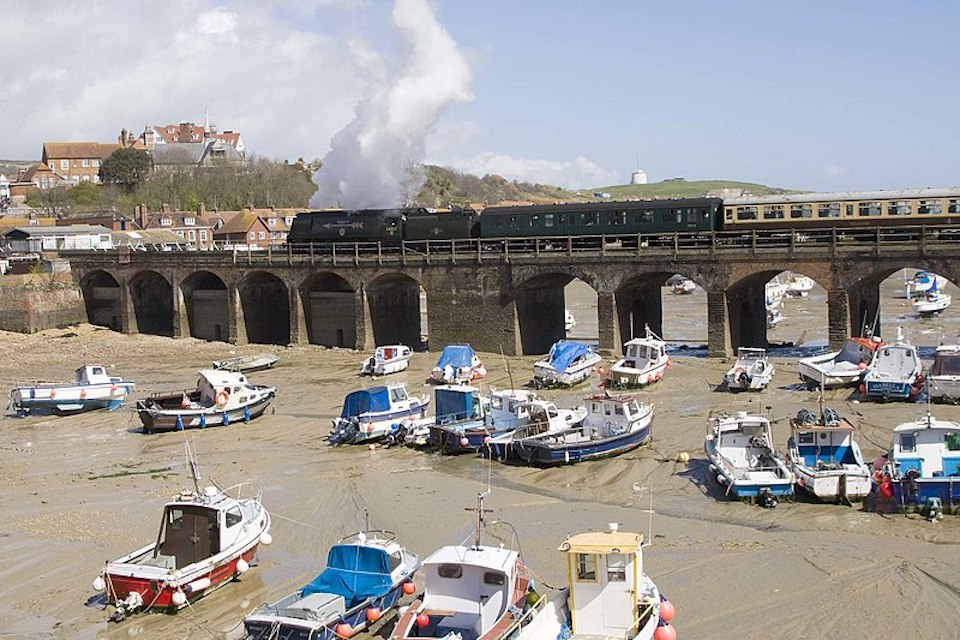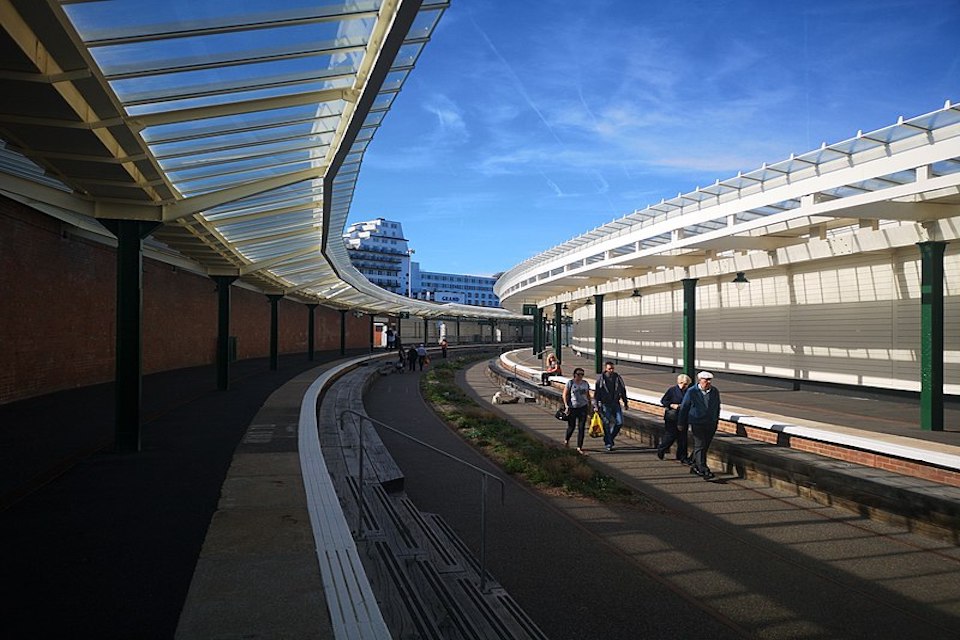UK Orient Express no more and a little Kent port misses out
It is not the fastest way to cross the Channel, but after new passport controls are introduced, it may well be the slowest. That's the fear of Belmond, the company that runs the Venice Simplon Orient Express. The company, famous around the world for once in a lifetime railway experiences, says the potential delays and inconvenience are not the sort of once in a lifetime experience it wants its passengers to endure.
Belmond has therefore announced it is axing the British leg of its Orient Express experience, an evocative modern-day recreation of the luxurious boat train service. It means an end to passengers visiting historic Folkestone, where the harbour station was once the hub for European services. Belmond, one of the most famous names in the booming premium railway journey sector, has announced that it will no longer run the British leg of the Venice Simplon Orient Express.
Although long since superseded by the much more efficient twenty-first century utilitarian Eurostar, the nineteenth-century luxury train service between London and Folkestone has fallen victim to twenty-first century bureaucracy. The decision was made due to delays caused by Britain's favourite talking point: Brexit border controls. Although British fans of the operator will still be able to experience domestic services, such as their popular Scottish land cruises and a programme of day trips, they will no longer be able to begin Orient Express journeys from London, and miss out on a visit to the original English Channel port of Folkestone.
Damning evidence backs decision to quit
Venice - Paris - London.
La Serenissima and The City of Light may well remain connected by the sumptuous Orient Express experience, but The Big Smoke is puffed out of the picture. If forced to investigate what's behind the Belmond company decision to axe the British leg of the Orient Express experience, there would be no need to employ Sherlock Holmes or Hercule Poirot. It's Brexit.
That's precisely why the company has said they'll be killing off the British leg of the unique rail trip. Case closed.
 Special service. Iconic steam engine "Tangmere" hauls possibly the last train over the Harbour Bridge at Folkestone.
Special service. Iconic steam engine "Tangmere" hauls possibly the last train over the Harbour Bridge at Folkestone.
Although "boat-trains" of the inter-war years no longer operate, Belmond recreates the experience by routing their luxury train via Folkestone in Kent, from where passengers are transferred to a road coach for the Channel crossing.
The Recent scenes of chaos, particularly Dover and Calais gave damning evidence of the prudence of the decision to quit the UK leg of the journey. During the Easter holidays, travellers faced delays of up to 14 hours in Dover due to post-Brexit security checks. Belmond fears that the new biometric passport checks being agreed by the UK and EU will only make the situation worse.
Major campaign to save the station
The Orient Express has made the London-Folkestone leg of its journey for more than a third of its history, with the journey first running through the Kent port from 1930.
The train journey, which inspired Agatha Christie's famous novel Murder on the Orient Express, was revived in the nineteen eighties as a premium leisure experience, complete with refurbished 1929 sleeping cars. Prior to the opening of the Channel Tunnel, Folkestone Harbour was the station which served as the rail hub for cross-Channel operations.
 Some visitors examine the curved platforms of Folkestone Harbour
Some visitors examine the curved platforms of Folkestone Harbour
The relatively small port had extensive rail operations to serve international traffic, including the Orient Express. The iconic Folkestone Harbour station, which is now preserved as a national monument, survived in operation until quite recently.
However, it took a major local campaign to save the station and the unique harbour bridge from demolition and redevelopment. The curved platforms have now been refurbished as part fo a leisure and retail revival, but the railway tracks - and the frequent ferry services - have now gone. Historically, Folkestone was a critical embarkation point for troops heading to the Western Front in the Great War, and indeed for their invalided return.
Brexit makes a backwater of Folkestone
This is not the end of Belmond in the UK.
Passengers will be routed via Eurostar services[1] to join the Orient Express in Paris. The company also still operates several domestic tourist trains. However, it is a blow for developing rail-based leisure, and Kent tourism.
Belmond explained that the company is adjusting operations in 2024 ahead of enhanced passport and border controls - a coded reference to the anticipated pandemonium. The company wants to avoid any risk of travel disruption for guests, delays and missed train connections. The EU is introducing a new biometric Entry/Exit System (EES), which will require most people travelling across the Channel who do not have EU residency to provide fingerprints and facial recognition data when they cross the border.
This will replace passport stamping. With many of Belmond's clients coming from outside the EU, and paying heavily for the privilege of a bygone railway journey, they have little appetite for exposing their clients to anything which upsets the silk-smooth experience. The EES was due to begin this year but is now likely to come into force after the 2024 Paris Olympics.
However, even babies will need to provide biometric data, causing scepticism in the tourist industry about how the checks will work in practice. The cancelation of the British leg of the Orient Express train journey is a significant blow to the tourism industry, particularly in Kent. The Orient Express has been a popular tourist attraction for more than 90 years, and its cancellation highlights the challenges that the tourism industry faces due to Brexit border controls - even in the relative backwater of Folkestone Harbour.
Further reading:
References
- ^ Eurostar services (www.railtech.com)